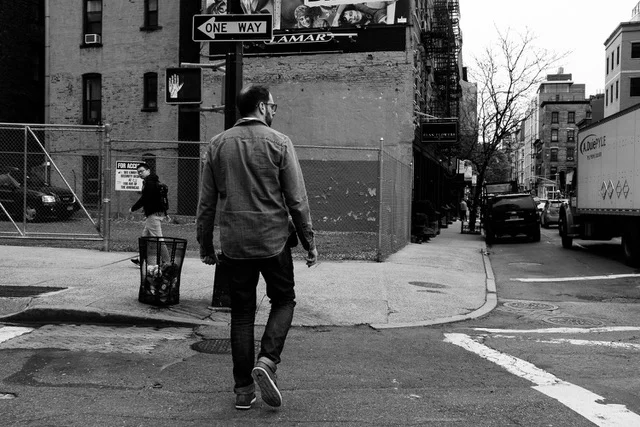Last night a man approached me before my performance with one of the stranger comments I’ve heard in a while.
“I just wanted to let you know,” he said, “that I’m going to be sitting in the front row so I can take notes during your show. Hopefully it won’t distract you too much.”
I’m not making this up.
He told me he had an interest in mentalism and was hoping to learn more about it from watching me. I kindly explained to him that it would, in fact, be extremely distracting and asked him to wait until intermission to write down anything he had learned.
Then, the show began. I took the stage and there was this man, sitting in the front row with a notebook and pen ready to go, completely ignoring my pre-show request.
So I tried to involve this man as much as I could. I gave him tasks and made eye contact. Over time, he wrote less and watched more.
What was I supposed to do?
I couldn’t scold the man in front of the audience. I didn’t want to lose 99% of the audience by being slightly rude to one person. When you’re onstage you learn to pick your battles.
You learn everything onstage.
When I first started performing I had no clue how to do a full show. I knew I needed a solid hour but it seemed like an insurmountable challenge. So I went in search of answers.
I devoured everything on YouTube and TV. I drove long hours to watch other performers. After their shows, I’d sit in the car with my wife and discuss everything we’d just seen: pacing, scripting, choreography, music, promo, merchandise, audience management, showmanship, choice of material, etc.
Back then, those were big discoveries that helped shape my act. But you can only learn so much offstage. I needed to do as many shows as possible.
That's how I learned to put an act together and what it feels like to spend an hour onstage. I discovered how to present to different audiences and how to make something truly entertaining.
After a while, the discoveries get smaller. Once you have a show in place, you start working on the small, precise details. You figure out how to motivate your actions and eliminate the “uh’s” and “um’s”. You insert a joke here and edit out the other one. Ironically, the smaller the discovery is, the bigger a difference it starts to make.
A week ago I realized that I had been delivering a joke completely wrong. I was placing emphasis on this word instead of that word. Onstage, I made the choice to deliver it in a new way and, lo and behold, I discovered a better way of doing it.
Eureka!
It takes hundreds of shows to get to that point. You need time to trip over your words and misplace your props first. Then, over time, the show gets better and you start to work on the details. There’s no shortcut here - it just takes time.
I love knowing that something may go wrong tonight and I’ll need to learn how to fix it on the fly. Or maybe the audience doesn’t care about my opening story so it’s time to get rid of it.
There’s always something something left to discover. That’s part of the joy of live theater. That’s why I love doing this so much.
In the last week alone I restructured the first act of my show, fixed a joke, and changed my blocking during the finale. I even know what to do now if someone ever wants to take notes in the front row again.
I can’t wait to see what discoveries await me tonight.
